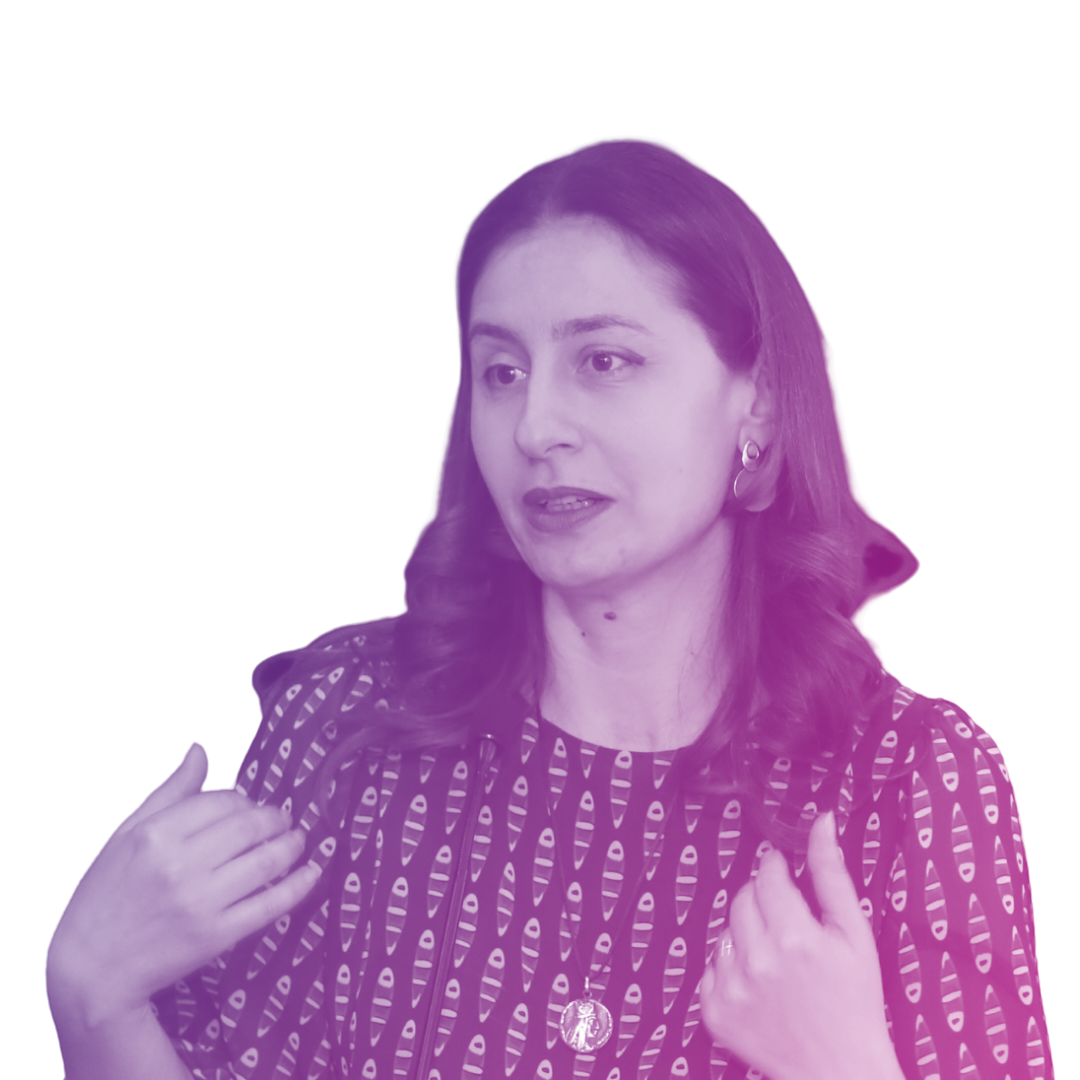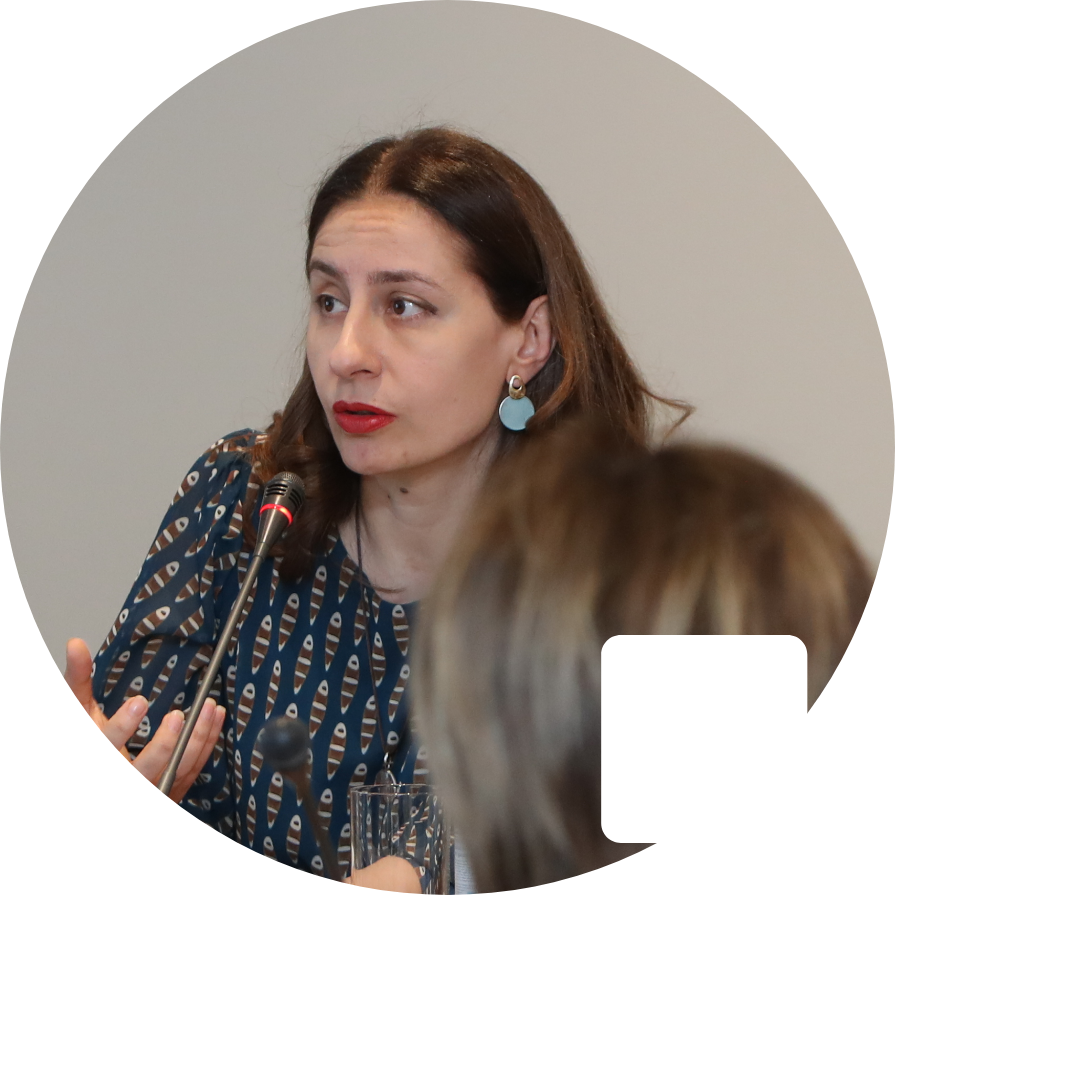
ARMENIA
Lousineh Hakobyan
Lousineh Hakobyan is a founding member, and since 2011, president of the Europe in Law Association (ELA). In 1998, she graduated from the Romance-Germanic Faculty of Yerevan State University; and in 2006, from the Armenia branch of Moscow International Academy of Entrepreneurship with a Diploma in Jurisprudence. Moreover, between 2007 and 2008 Lousineh Hakobyan completed her LLM in European Law at Queen Mary, University of London, andreceived her advocate’s licence in 2011. She has litigated cases in both domestic courts and in the European Court of Human Rights (ECtHR). Her pending cases before the ECtHR, among others, focus on protection of the rights to freedom of expression, freedom of assembly, right to life, liberty and security of a person, and prohibition of torture of a number of active citizens following the protest acts taking place in 2013-2014. Since 2011, she has successfully managed a number of projects supported by ELA’s international partners. As an expert in a number of fields of law, she has successfully acted as a trainer in electoral law and processes, in the rights to freedom of expression and freedom of assembly. In this context, she has conducted a series of human rights trainings for journalists and practicing lawyers. Lousineh Hakobyan has also contributed to legislative reform in Armenia, and has engaged successfully in advocacy and strategic litigation.
VITA
Lousineh Hakobyan is a founding member, and since 2011, president of the Europe in Law Association (ELA). In 1998, she graduated from the Romance-Germanic Faculty of Yerevan State University; and in 2006, from the Armenia branch of Moscow International Academy of Entrepreneurship with a Diploma in Jurisprudence. Moreover, between 2007 and 2008 Lousineh Hakobyan completed her LLM in European Law at Queen Mary, University of London, andreceived her advocate’s licence in 2011. She has litigated cases in both domestic courts and in the European Court of Human Rights (ECtHR). Her pending cases before the ECtHR, among others, focus on protection of the rights to freedom of expression, freedom of assembly, right to life, liberty and security of a person, and prohibition of torture of a number of active citizens following the protest acts taking place in 2013-2014. Since 2011, she has successfully managed a number of projects supported by ELA’s international partners. As an expert in a number of fields of law, she has successfully acted as a trainer in electoral law and processes, in the rights to freedom of expression and freedom of assembly. In this context, she has conducted a series of human rights trainings for journalists and practicing lawyers. Lousineh Hakobyan has also contributed to legislative reform in Armenia, and has engaged successfully in advocacy and strategic litigation.
May I ask you how you became a lawyer with a special focus on human rights?
I have been focusing on human rights protection in the last 15 years, first as an intern, and then as a lawyer and advocate. I am also very much interested in judicial reform in Armenia, because the law is not a one-sided process. It has many actors and to be successful in human rights litigation, professionalism and efficiency of all actors are very important to consider. That is why members of our organization focus also on reforming particular areas in which we have been operating. For example, we monitor the recruitment and election processes within the judiciary. We have been also monitoring the processes within the Constitutional Court since 2018. Thus, we have interacted with various international organizations, including the Venice Commission and institutions that belong to the Council of Europe.
In what way are you and your organization involved in protection of the victims of human rights violations?
We handle many strategic litigation cases, specifically cases of freedom of expression, supporting journalists, media organisations and public figures in fighting various defamation regulations and defending their interests not only in local courts, but also in the European Court of Human Rights (ECtHR). Last summer, we had two such successful cases in the ECtHR: the Court found a violation of two media organizations’ right to freedom of expression. There is a procedure whereby the government of Armenia can make a unilateral declaration recognizing the rights of victims and offer them some kind of compensation. We have been particularly involved in this process, facilitating negotiations between the government and the victims. We have been defending the rights of some civil society members, because after the 2018 “Velvet Revolution”, the civil society came under heavy attack by different groups, resulting in a lot of defamation and insult cases. In fact, we were defending ourselves, because we also came under this attack. We had to protect our reputation and sue different newspapers.

“I can say that I am a human rights person by nature and if I see injustice, and people need my help when they reach out to me, I will take up a case.”
How is the situation of human rights lawyering in Armenia?
First, I think there are few people who would like to work as lawyers in the civil society sector in Armenia, and that is a huge challenge, because this is an area where a lot of legal support is needed. Second, the legal community and institution, I am speaking here about the Armenian Bar Association, have become highly politicized. For instance, the previous president of the Armenian Bar Association was heavily involved in politics, registering a political party and engaging in active politics, which was contrary to the Armenian Constitution that provides that the Armenian Bar has to be independent. Later on, this person became the principal of the only school of the advocates in Armenia, in spite the requirement that the educational establishments need to be depoliticized. This was again a huge damage to the legal profession.
You mentioned two of the issues that human rights lawyers face in Armenia. Are there any institutional obstacles that you would like to point out?
The biggest challenge is the unreformed judiciary. After the revolution, it was clear that people managed to form a legislative and an executive body by free will, but the judiciary remained largely unreformed. That is why we are really keen to participate in the judicial reform and have a better judiciary, which is not involved in politics and has a really good command of the law, both domestic and international, and applies it in practice. The same is true for other institutions, such as the prosecutor's office, the investigative service, etc. It is an obstacle when you for instance are expecting to get a proper investigation of a criminal case, but a sound criminal case gets destroyed, because an investigator does not know how to do his own job.
Have you also handled a politically motivated case that caused problems to your professional integrity and physical well-being?
There was one case involving a civic activist, Vardges Gaspari, who was really hatted by the former regime. We were targeted for defending him and protecting his rights. In 2017, there was even a moment, when a source in one of the international organizations informed us that one of our lawyers would be arrested due to his involvement in the electoral complaints, but luckily, it did not happen. In the same year, again a number of defamatory articles were published about us. It was a huge harm to our reputation, but then the revolution changed everything.
How do you picture your impending involvement in promoting human rights?
I can say that I am a human rights person by nature and if I see injustice, and people need my help when they reach out to me, I will take up a case. Luckily, we still have the European Court of Human Rights, which is kind of the last hope for many people. On the other hand, it gives me also hope to see that at least the current government is ready in some cases to declare unilaterally that they are ready to recognize human rights violations and that it is ready to correct somehow the mistakes of the courts. However, the fact that we have spent now four years after the revolution without any profound reform of the judiciary and the rest of the law enforcement is quite disappointing.
Thank you so much for this interview.
Armenia
